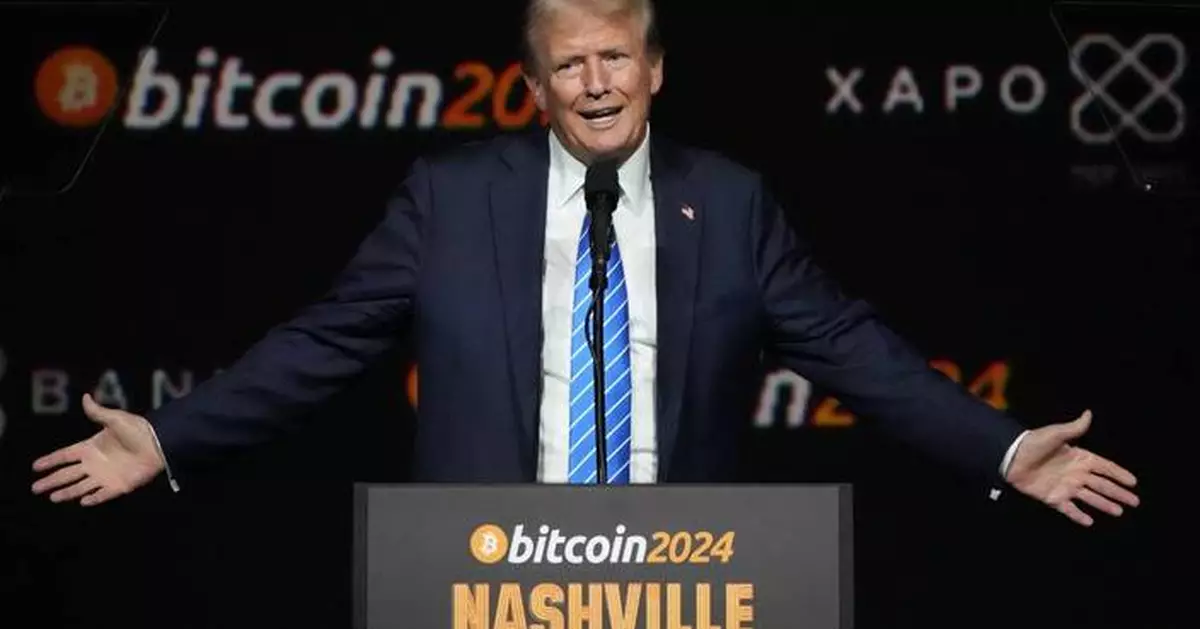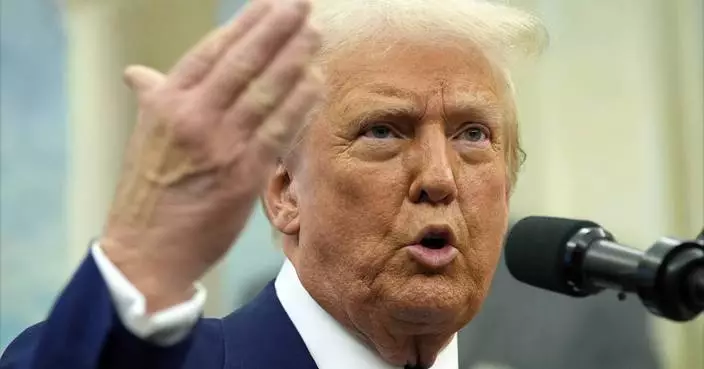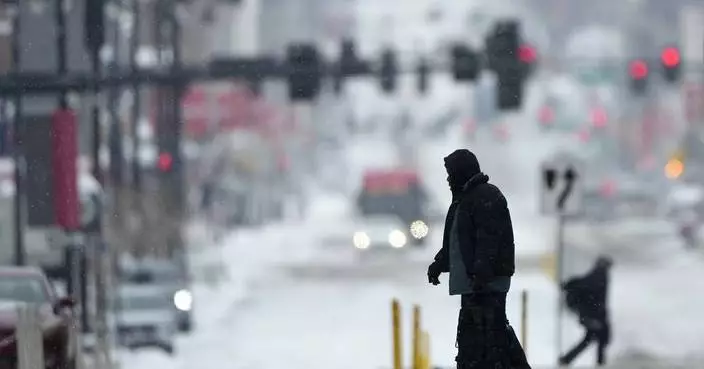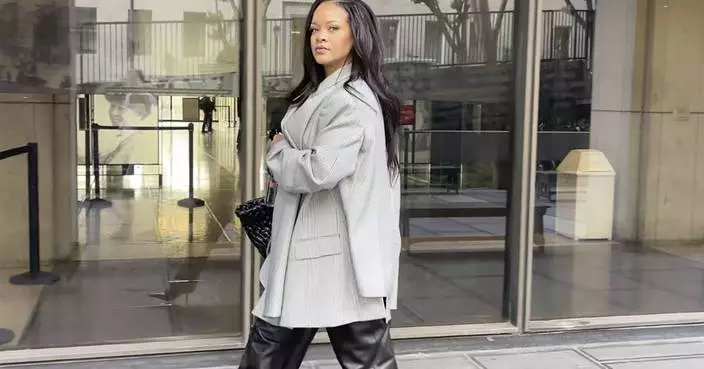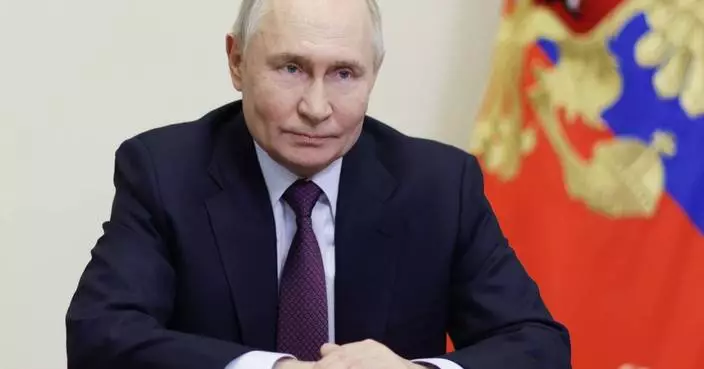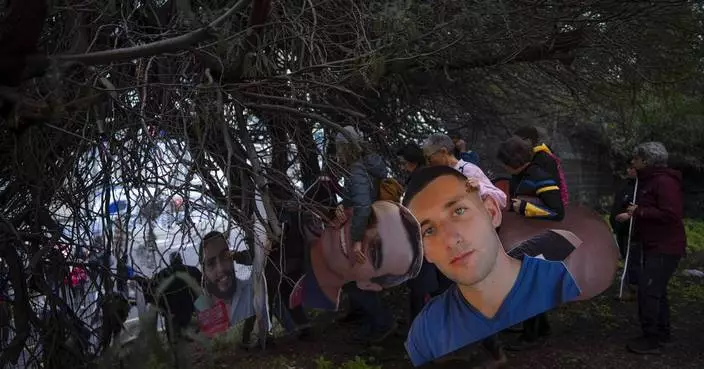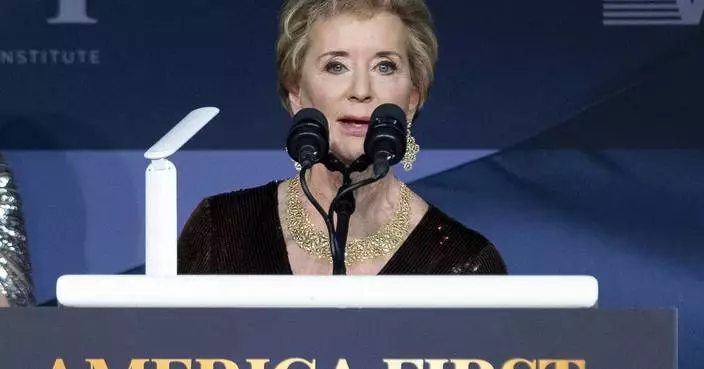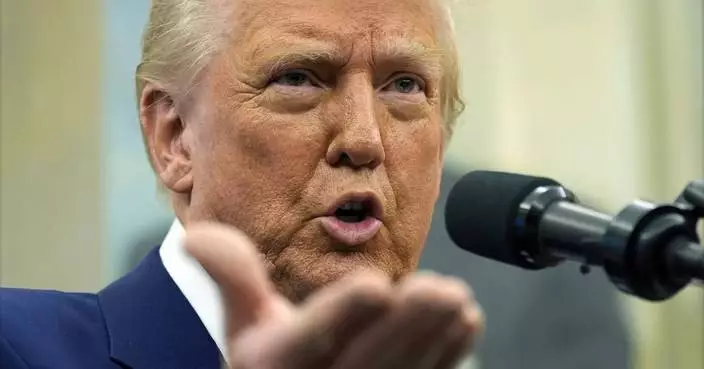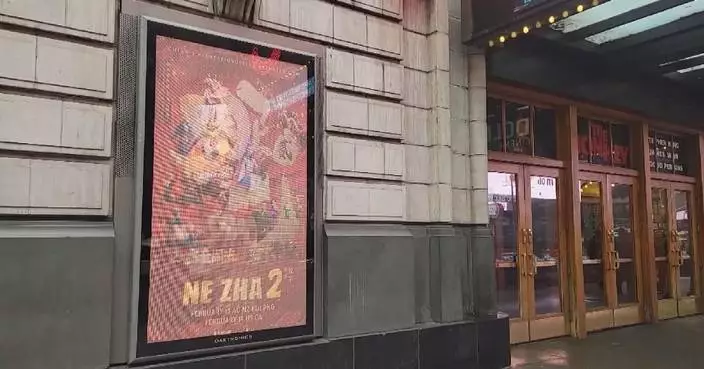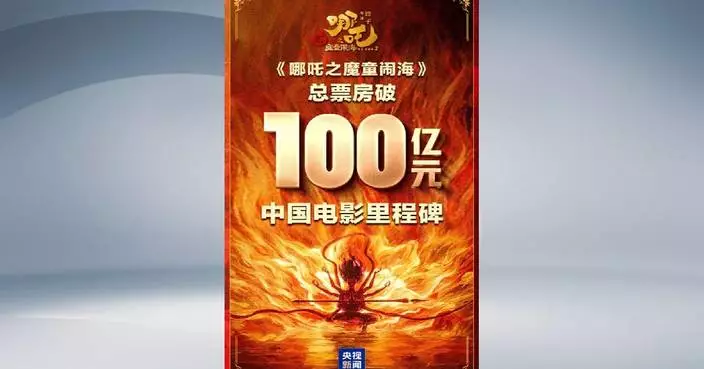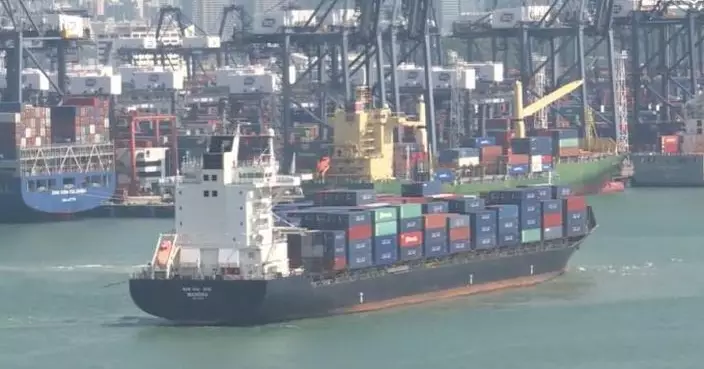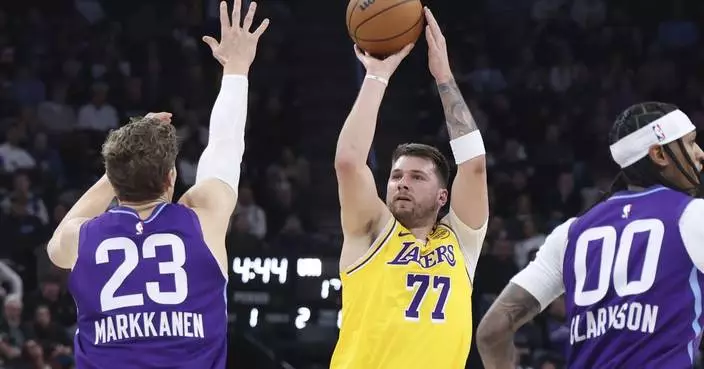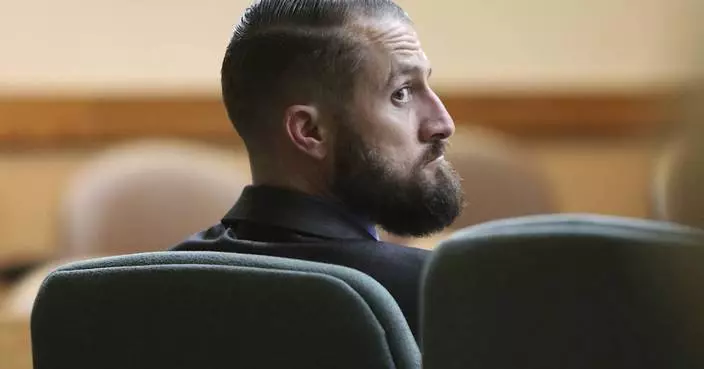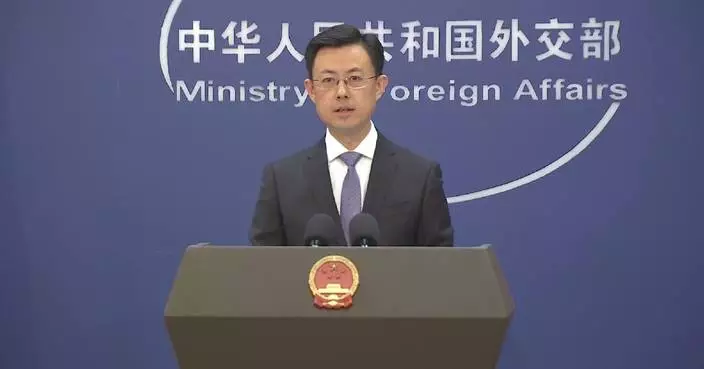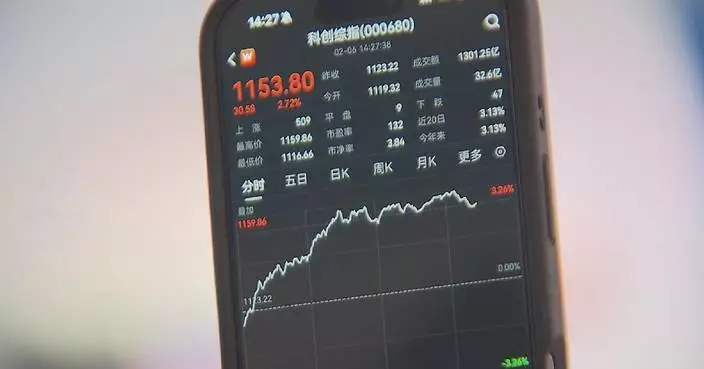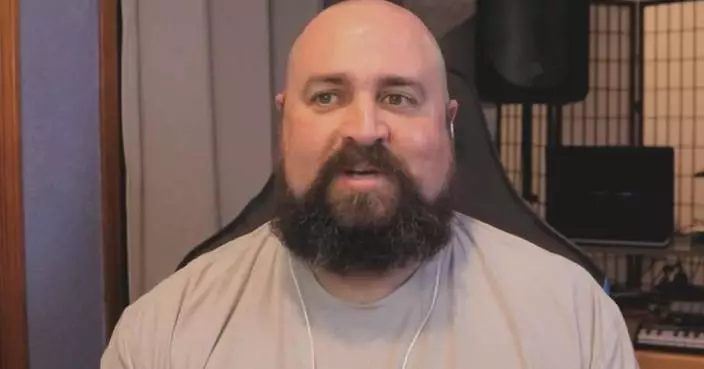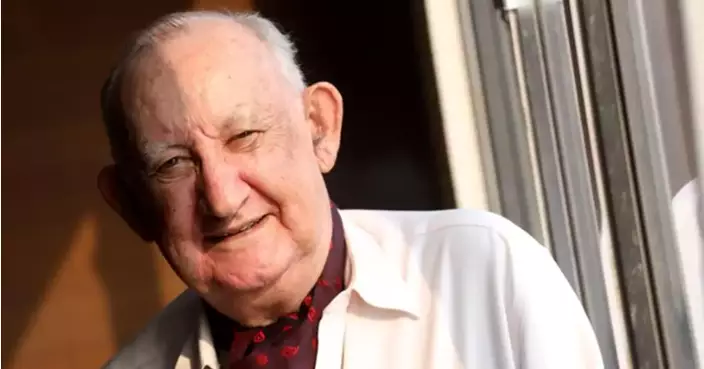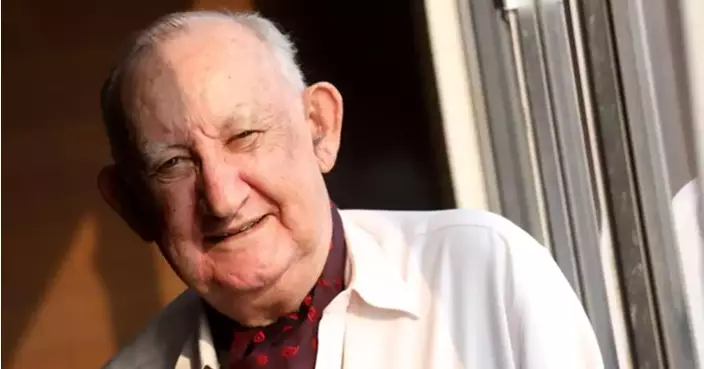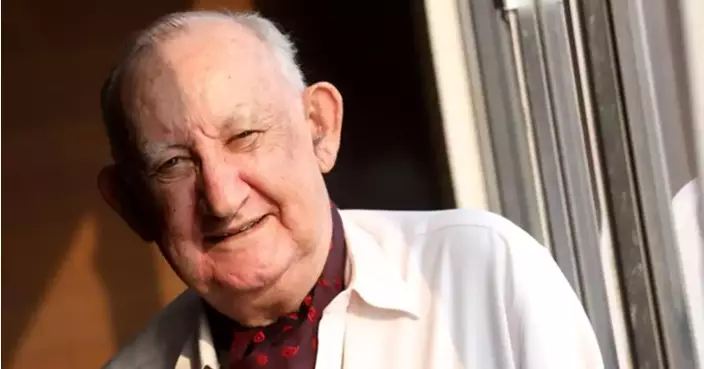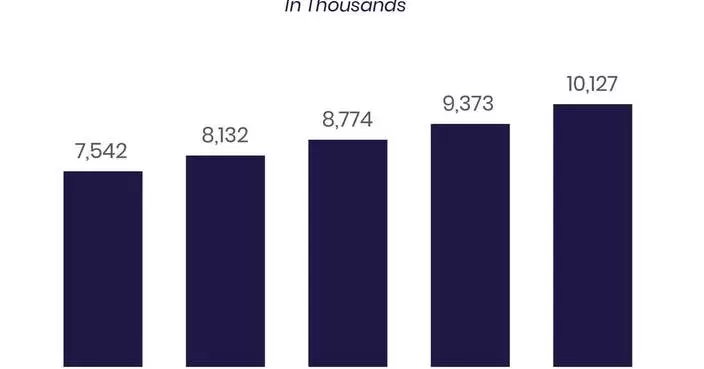NEW YORK (AP) — The Trump family business released a voluntary ethics agreement Friday that allows it to strike deals with private foreign companies, a move that could help outside actors try to buy influence with the new administration.
The so-called ethics white paper bars the Trump Organization from striking deals directly with foreign governments, but allows ones with private companies abroad, a significant departure from President-elect Donald Trump's first term. An ethics pact that Trump signed eight years ago barred both foreign government and foreign company deals.
The Trump company also announced it would commit to several safeguards from his first term designed to stop his private financial interests from shaping policy. That includes hiring an outside ethics adviser to vet deals.
"The Trump Organization is dedicated to not just meeting but vastly exceeding its legal and ethical obligations during my father’s Presidency,” said executive vice president Eric Trump.
The Trump Organization recently struck deals for hotels and golf resorts in Vietnam, Saudi Arabia and the United Arab Emirates, raising concerns by government ethics experts that president-elect Trump's personal financial interests could influence policy toward those countries.
The family company has expressed interest in striking deals in Israel and elsewhere, and has financial interests in two businesses with publicly traded stock that could get a boost from foreign investors. That includes Trump Media & Technology Group, the parent company of social media platform Truth Social, and a new cryptocurrency venture, World Liberty Financial.
“The scale of corruption will be orders of magnitude greater than what we saw in the first Trump administration," said government ethics lawyer Kathleen Clark of Washington University School of Law in St. Louis. People trying to win Trump's favor now have an easy way to do so, she said, by using “massive influxes of cash through ‘investments’ in Trump crypto and real estate ventures.”
The Trump Organization announced that it was hiring William A. Burck, a managing partner of Quinn Emanuel LLP, to vet deals that could pose conflicts with public policy.
As in the last ethics agreement, the five-page white paper also prohibits Trump from “day-to-day” decision making at the Trump Organization, limits financial information about the business shared with him and commits the company to donate to the U.S. Treasury profits from foreign government spending at its properties.
Under U.S. law, federal government officials are not permitted to hold financial interests in businesses that could sway their opinion on public policy they help shape, and are often forced to sell off their stakes. U.S. presidents are excluded from the post-Watergate ethics ban, but all presidents have voluntarily agreed to follow the law, except for Trump.
The first billionaire president would have had to sell more than a dozen golf courses around the world, office and residential towers in Las Vegas, Chicago and New York and several resorts, including Mar-a-Lago in Florida.
In his first term, Trump pledged to avoid even the appearance of conflicts of interest at the outset of his presidency, but ended up openly courting business to his properties instead. He once tried to hold a G-7 meeting of global leaders at his golf resort in Doral, Florida. He had to abandon the idea after outcry from critics.
His Trump hotel in Washington D.C. was also a major source of concern for ethics watchdogs in his first term. The Trump International Hotel down the street from the White House quickly became a gathering spot for lobbyists, both domestic and foreign, as well as foreign diplomats.
Several groups accused Trump of violating the Constitution's “emoluments” ban on gifts and payment to the president, citing the hotel in particular. The hotel has since been sold and the Supreme Court refused to rule on an emoluments violation after Trump had left office, citing that the issue was moot.
Now, the emoluments clause could become a legal headache for Trump again given his company's sprawling businesses, including the two new, publicly traded ventures.
His financial stake in one of them, Trump Media, is worth billions of dollars.
Critics worry people who want to curry favor with the president, including foreign officials, could buy stock in the company, pushing the price up further along with his paper wealth.
Another new Trump family venture, World Liberty Financial, a platform used to trade cryptocurrencies, is also controversial.
In his first term in office, Trump said he was “not a fan” of cryptocurrency and tweeted in 2019, “Unregulated Crypto Assets can facilitate unlawful behavior, including drug trade and other illegal activity.”
He has since reversed that position, promising to make the U.S. the “crypto capital of the planet” at a bitcoin conference in Nashville this year. He has tapped two cryptocurrency champions to join his administration, Commerce Secretary nominee Howard Lutnick and Treasury Secretary nominee, Scott Bessent.
The Securities and Exchange Commission has warned that cryptocurrencies are volatile investments with few safeguards to protect investors from manipulation and fraud, and cracked down on some firms. It's not clear if the agency's close scrutiny of the industry will continue in the new administration. Trump’s nominee to head the SEC, Paul Atkins, is an advocate for cryptocurrencies.
Eric Trump, the son most heavily involved in running the Trump Organization, has expressed frustration that the company had become a lightning rod for conflicts of interest critics during his father's first presidential term despite the company's voluntary ethics ban on certain deals. He has said he wants a freer hand this time running the business.
In a Vietnam deal in October, the Trump Organization joined with a Vietnamese developer with ties to the ruling Communist Party for a $1.5 billion luxury golf resort, raising questions about whether this might influence U.S. policy.
The deal comes at an especially vulnerable time for Vietnam as Trump vows to raise tariffs on many countries. Vietnam has a large U.S. trade surplus that makes it a ripe target for Trump's threat to punish countries he says are engaging in unfair trading practices.
The Trump Organization also has buildings bearing the Trump name in India, Turkey and several other countries. It owns two golf courses in Scotland, and one in Ireland, and has plans for resorts in other countries, including Oman and Indonesia that are at various stages of development.
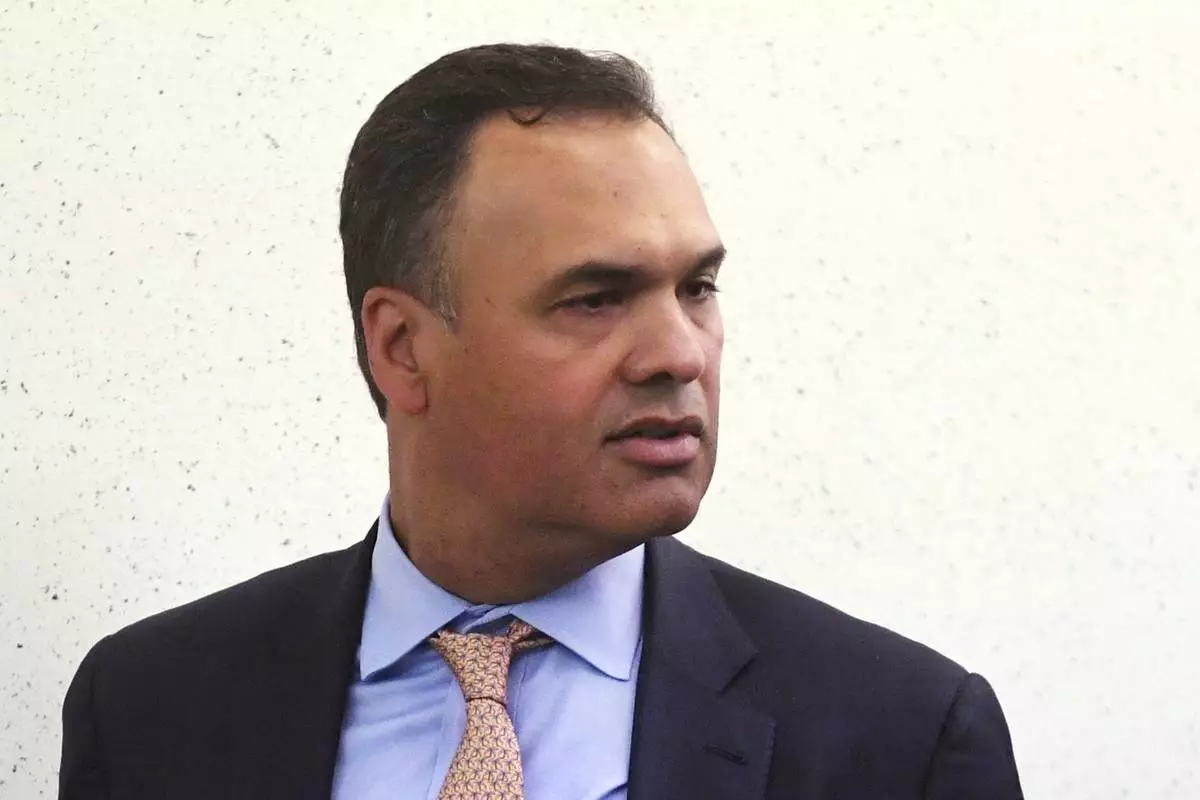
FILE - Attorney William Burck emerges from a courtroom in West Palm Beach, Fla., April 12, 2019. (Patrick Dove/TCPalm.com via AP, Pool, File)
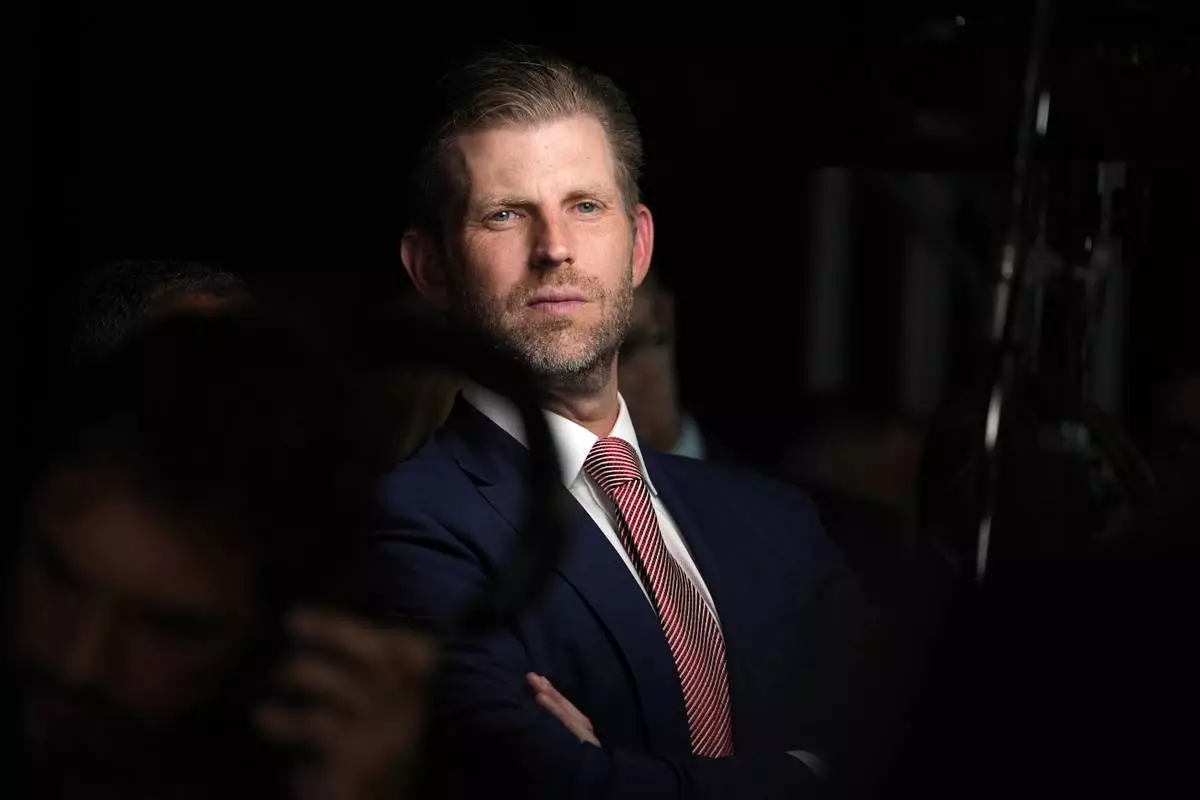
FILE - Eric Trump appears in the spin room after a presidential debate, Sept. 10, 2024, in Philadelphia. (AP Photo/Matt Slocum, File)
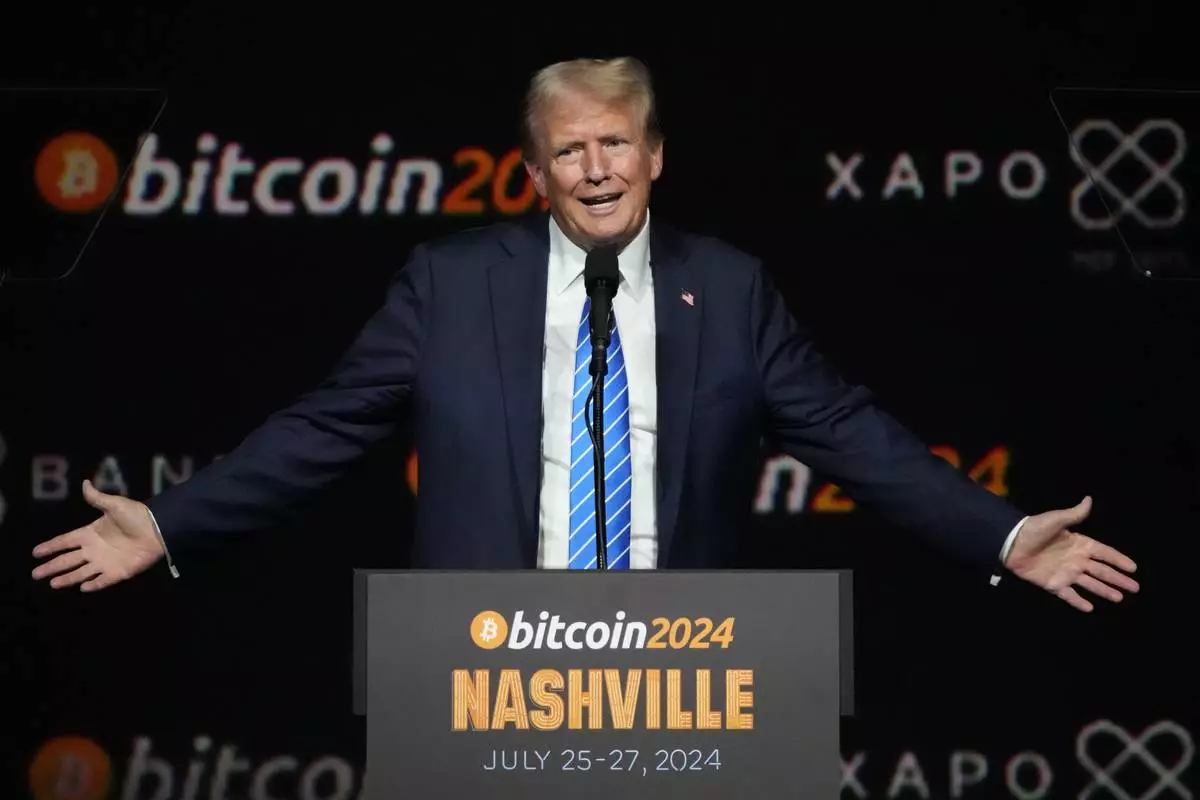
FILE -Republican presidential candidate former President Donald Trump speaks at the Bitcoin 2024 Conference, July 27, 2024, in Nashville, Tenn. (AP Photo/Mark Humphrey, File)
WASHINGTON (AP) — President Donald Trump has repeatedly said Canada should be the 51st U.S. state as he proposes to erase the 5,525-mile-long border that separates the two countries. The very notion is ludicrous to Canadians and the hurdles to transforming it into a state are sky high.
But in Trump's thinking, the traditional Lower 48 states would become the contiguous 50 as the Canadian territory between the U.S. mainland and Alaska disappears, leaving Hawaii as the only non-continental state.
“If people wanted to play the game right, it would be 100% certain that they’d become a state,” Trump said recently.
Canada at first reacted as though Trump must be joking, and Prime Minister Justin Trudeau said flatly his country would never be the 51st state. Trudeau more recently suggested behind closed doors that Trump's sustained annexation calls may not be just light talk and appear to be "a real thing.”
Here's what it would take to transform Canada from a nation to a state:
Congress has to approve accepting a new state.
It takes only a House majority, but Senate filibuster rules require a minimum of 60 votes in the 100-member chamber to bring a bill to the floor — an insurmountable threshold for all kinds of key legislation.
The Constitution’s Admissions Clause, Article IV, Section 3, states: “New States may be admitted by the Congress into this Union; but no new State shall be formed or erected within the Jurisdiction of any other State; nor any State be formed by the Junction of two or more States, or Parts of States, without the Consent of the Legislatures of the States concerned as well as of the Congress.”
Any measure approving a new state that clears Congress would also have to be signed into law by the president. In the case of Canada, Trump has made it clear he would be eager to do so.
Republican Sen. Lindsey Graham of South Carolina, a Trump ally, joked on X when all 50 states certified Trump's Electoral College victory last month, “They skipped Canada. We’ll fix that next time!”
No major legislation is advancing that would extend an invitation to statehood to America's northern neighbor.
To say that most Canadian leaders aren't interested in becoming a state would be an understatement. Ontario Premier Doug Ford, head of Canada’s most populous province, has spun out a counteroffer for Trump.
“How about, if we buy Alaska, and we’ll throw in Minnesota and Minneapolis at the same time,” he said, adding of Trump’s suggestion: “It’s not realistic.”
There have been multiple past pathways to statehood — from the absorption of the 13 colonies under the Articles of Confederation, to Congress formally agreeing to Texas' request to be annexed as the 28th state.
Most states were added after Congress accepted a petition from some territorial legislative body, which could include legislatures that Congress itself suggested forming as part of the process.
Canada would probably have to have a referendum to gauge voters' interests in joining the U.S. before more detailed aspects of the process could begin — and that's almost certainly a non-starter.
While not addressing Canada as the 51st state directly, polling last year from Gallup and the Pew Research Center shows that Americans overwhelmingly have a positive view of Canada — and that while Canadians view the U.S. more positively than negatively, their view may be a little more muted.
Trump's threats of tariffs have left Canadians feeling betrayed, and sports fans in Canada have begun voicing their displeasure by booing the U.S. national anthem at NBA and NHL games.
Profoundly — and that's without speculating about whether a majority of Canadians might back Democrats or Republicans for president and in Congress.
If Canada were to join the U.S. — again, a highly unlikely prospect — its population of 41.6 million would make it the largest state, outpacing California’s 39.4 million residents. Canada would get two senators but also 55 House seats based on the average congressional district population following the 2020 U.S. census, which was 761,169 individuals.
That would make Canada the presidential race’s richest prize, with 57 Electoral College delegates — exceeding California’s 54.
The Permanent Apportionment Act of 1929, meanwhile, caps the number of House seats at 435, meaning that other state delegations would have to shrink to make room for the new Canadian members of the House — and, by extension, its delegates to the Electoral College.
Suddenly, make-or-break swing states like Pennsylvania, Michigan and Wisconsin would not look so important if there were tens of millions of Canadians waiting to be wooed with a presidential election on the line.
Before Trump took office for his second term, debate around adding State No. 51 traditionally centered around Puerto Rico and Washington, D.C.
Puerto Rico is a U.S. commonwealth, and its voters have approved statehood in nonbinding referendums. Proposals to allow it become a state have repeatedly been introduced in Congress but not approved.
Washington, D.C., residents have voted in support of statehood and approved a state constitution and proposed boundaries. A bill admitting into the union the city as Washington, Douglass Commonwealth, passed the Democratic-controlled House as recently as 2021 but not the Senate.
Republicans now control both chambers, meaning they'll likely oppose adding states that could be majority Democratic like Puerto Rico or D.C.
The nation's capital gets three Electoral College votes for president under the Constitution's 23rd Amendment, though it lacks voting representation in Congress. That's why the Electoral College has 538 total delegates: 435 House members, 100 senators and three for D.C.
Hawaii became the 50th state in 1959, nearly 18 years after the Japanese bombed Pearl Harbor.
The island chain about 2,400 miles (3,900 kilometers) from the mainland United States was annexed as a U.S. territory by Congress in 1898. Many bills offering Hawaii statehood were subsequently introduced, but they stalled for decades amid racial discrimination and partisan disagreement.
By the early 1950s, Hawaii leaned Republican, and Democrats opposed its admission to the union without including Alaska, which was seen as more favorable to their party.
Alaska, separated from the mainland U.S. by about 500 miles (800 kilometers) of Canadian territory, was eventually admitted as State No. 49 in January 1959. That opened the door for Congress to approve Hawaii’s statehood that March, and island voters chose to join the union on Aug. 21, 1959.
It turned out that Alaska has backed Republicans in every presidential election except 1964, while Hawaii has voted Democratic every presidential cycle but 1972 and 1984.
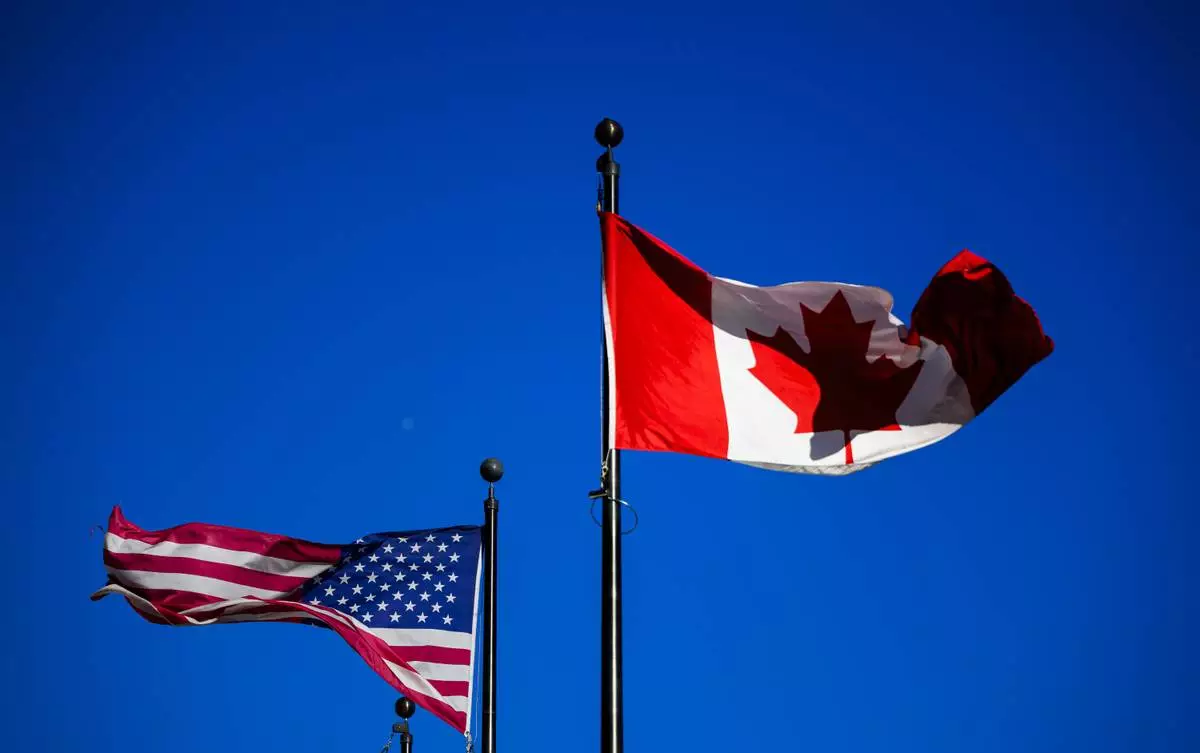
The flags of Canada and the United States fly outside a hotel in downtown Ottawa, on Saturday, Feb. 1, 2025. (Justin Tang/The Canadian Press via AP)
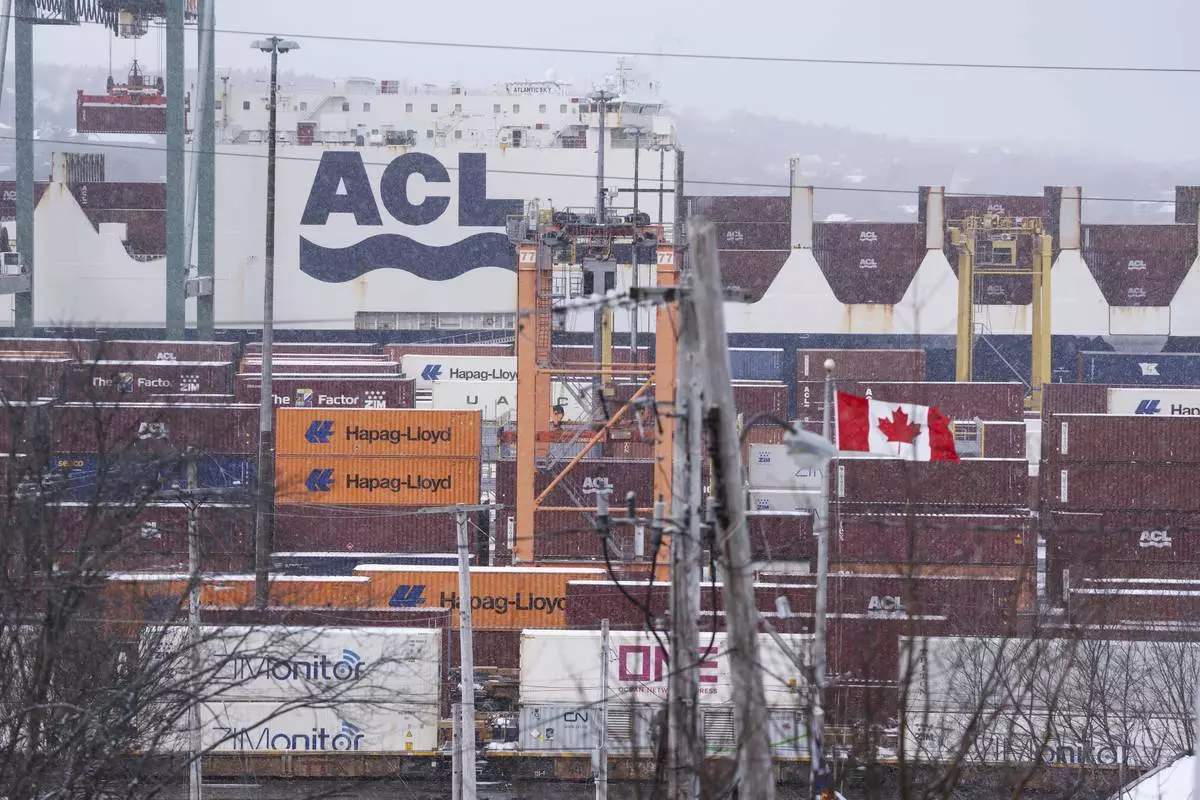
Shipping containers are seen at the PSA Halifax Fairview Cove container terminal in Halifax on Monday, Feb. 3, 2025, one day ahead of imposed tariffs by U.S. President Donald Trump against Canada. (Darren Calabrese/The Canadian Press via AP)
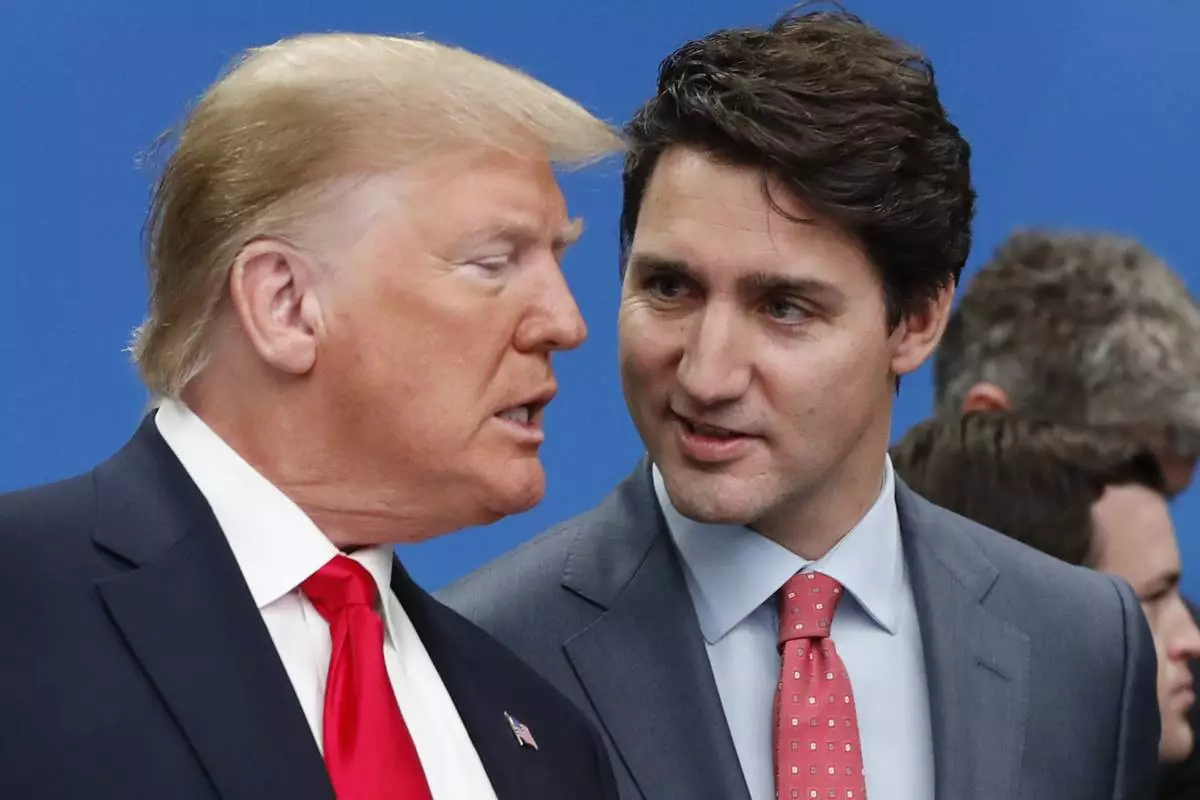
FILE - U.S. President Donald Trump, left, and Canadian Prime Minister Justin Trudeau talk prior to a NATO round table meeting at The Grove hotel and resort in Watford, Hertfordshire, England, Dec. 4, 2019. (AP Photo/Frank Augstein, File)
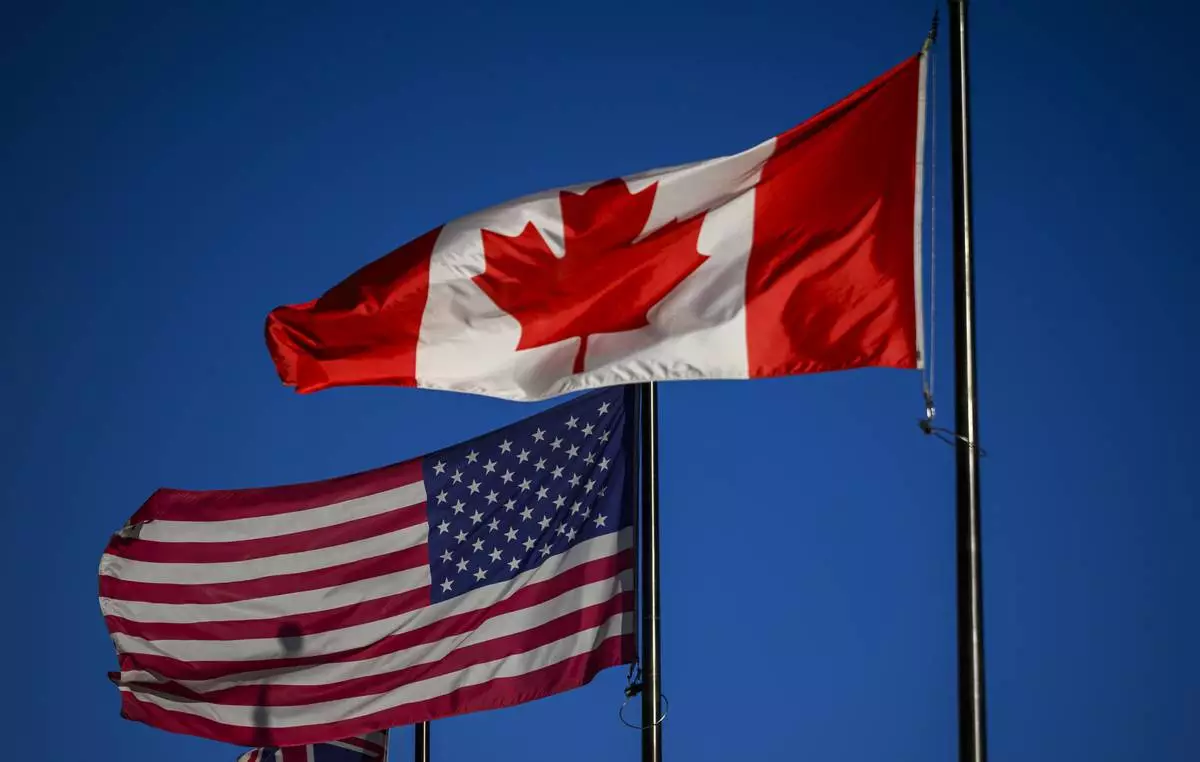
The flags of Canada and the United States fly outside a hotel in downtown Ottawa, on Saturday, Feb. 1, 2025. (Justin Tang/The Canadian Press via AP)





